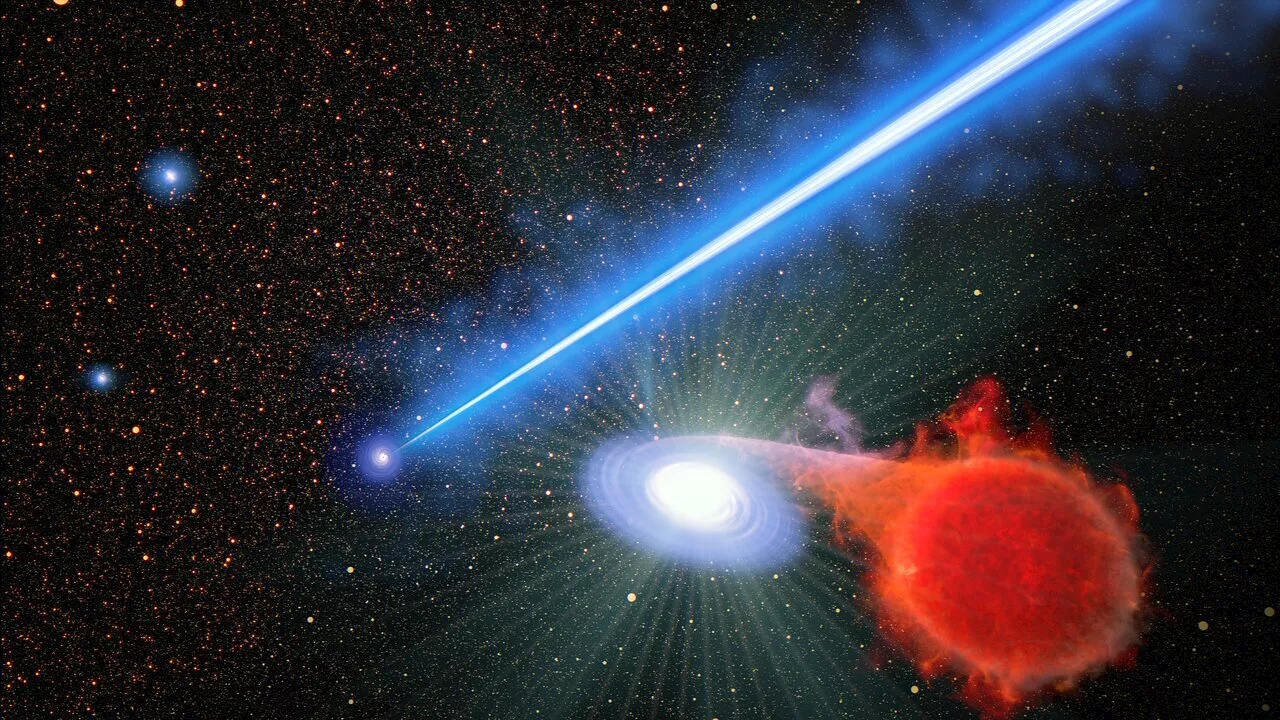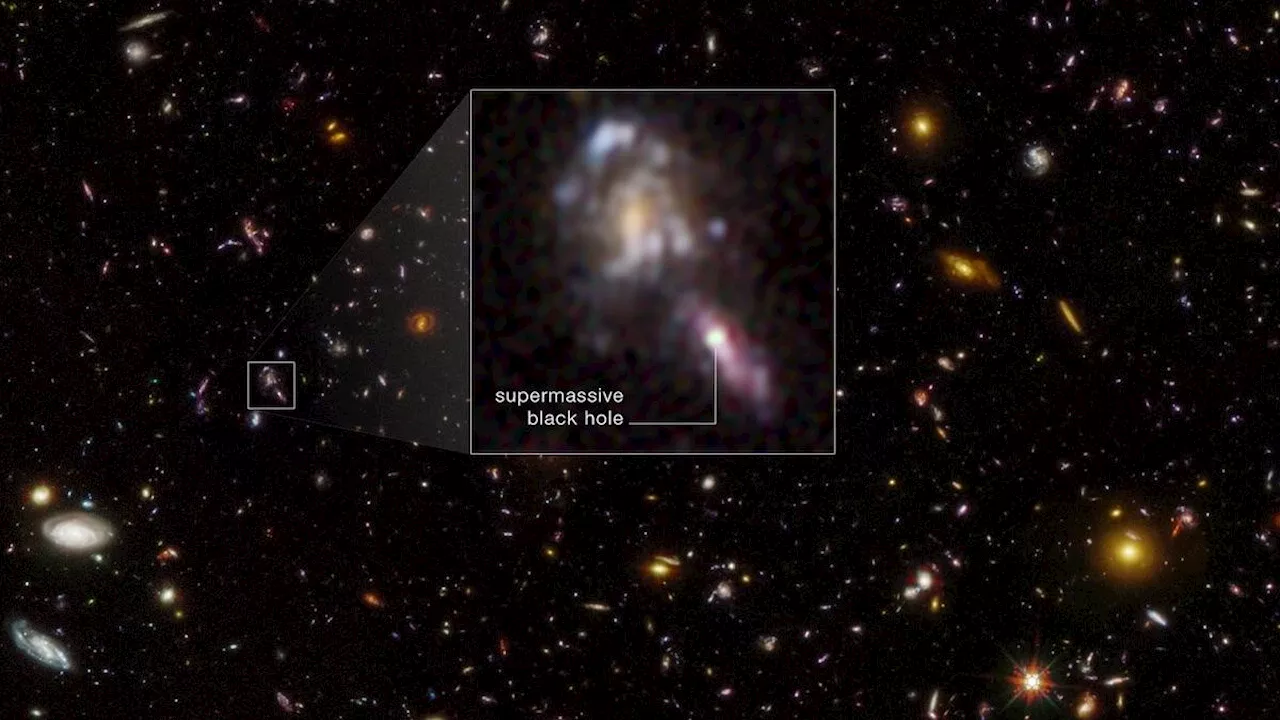Ben Turner is a U.K. based staff writer at Live Science. He covers physics and astronomy, among other topics like tech and climate change. He graduated from University College London with a degree in particle physics before training as a journalist.
Astronomers using the Hubble Space Telescope have discovered a gigantic"blowtorch-like" jet blasting out of a black hole — and it seems to be causing nearby stars to explode.
"We don't know what's going on, but it's just a very exciting finding," study lead author Alec Lessing, an astrophysicist at Stanford University, said in a NASA statement."This means there's something missing from our understanding of how black hole jets interact with their surroundings." By submitting your information you agree to the Terms & Conditions and Privacy Policy and are aged 16 or over.However, how these jets affect their surroundings is largely unknown. By pointing Hubble near the M87 jet, the researchers found that twice as many novas were erupting in star systems near the jet than in the wider galaxy.
United States Latest News, United States Headlines
Similar News:You can also read news stories similar to this one that we have collected from other news sources.
 Hubble and Chandra find supermassive black hole duoLike two Sumo wrestlers squaring off, the closest confirmed pair of supermassive black holes have been observed in tight proximity. These are located approximately 300 light-years apart and were detected using NASA's Hubble Space Telescope and the Chandra X-ray Observatory.
Hubble and Chandra find supermassive black hole duoLike two Sumo wrestlers squaring off, the closest confirmed pair of supermassive black holes have been observed in tight proximity. These are located approximately 300 light-years apart and were detected using NASA's Hubble Space Telescope and the Chandra X-ray Observatory.
Read more »
 Hubble finds more black holes than expected in the early universeWith the help of NASA's Hubble Space Telescope, an international team of researchers led by scientists in the Department of Astronomy at Stockholm University has found more black holes in the early universe than has previously been reported. The new result can help scientists understand how supermassive black holes were created.
Hubble finds more black holes than expected in the early universeWith the help of NASA's Hubble Space Telescope, an international team of researchers led by scientists in the Department of Astronomy at Stockholm University has found more black holes in the early universe than has previously been reported. The new result can help scientists understand how supermassive black holes were created.
Read more »
 Hubble finds that a black hole beam promotes stellar eruptionsIn a surprise finding, astronomers using the NASA/ESA Hubble Space Telescope have discovered that the blowtorch-like jet from a supermassive black hole at the core of a huge galaxy seems to cause stars to erupt along its trajectory. The stars, called novae, are not caught inside the jet, but are apparently in a dangerous neighborhood nearby.
Hubble finds that a black hole beam promotes stellar eruptionsIn a surprise finding, astronomers using the NASA/ESA Hubble Space Telescope have discovered that the blowtorch-like jet from a supermassive black hole at the core of a huge galaxy seems to cause stars to erupt along its trajectory. The stars, called novae, are not caught inside the jet, but are apparently in a dangerous neighborhood nearby.
Read more »
 Jets From Black Holes Cause Stars to Explode, Hubble RevealsThe jets of material that spew from black holes catalyze stellar eruptions, surprising astronomers and raising questions about the jets' role in the universe.
Jets From Black Holes Cause Stars to Explode, Hubble RevealsThe jets of material that spew from black holes catalyze stellar eruptions, surprising astronomers and raising questions about the jets' role in the universe.
Read more »
 Hubble Space Telescope suggests our ancient universe was surprisingly crowded with supermassive black holesKeith Cooper is a freelance science journalist and editor in the United Kingdom, and has a degree in physics and astrophysics from the University of Manchester.
Hubble Space Telescope suggests our ancient universe was surprisingly crowded with supermassive black holesKeith Cooper is a freelance science journalist and editor in the United Kingdom, and has a degree in physics and astrophysics from the University of Manchester.
Read more »
 Police in this small, majority-Black Southern city abuse Black people, Justice Department findsPolice in a majority-Black Mississippi city discriminate against Black people, use excessive force and retaliate against critics, investigation finds.
Police in this small, majority-Black Southern city abuse Black people, Justice Department findsPolice in a majority-Black Mississippi city discriminate against Black people, use excessive force and retaliate against critics, investigation finds.
Read more »
